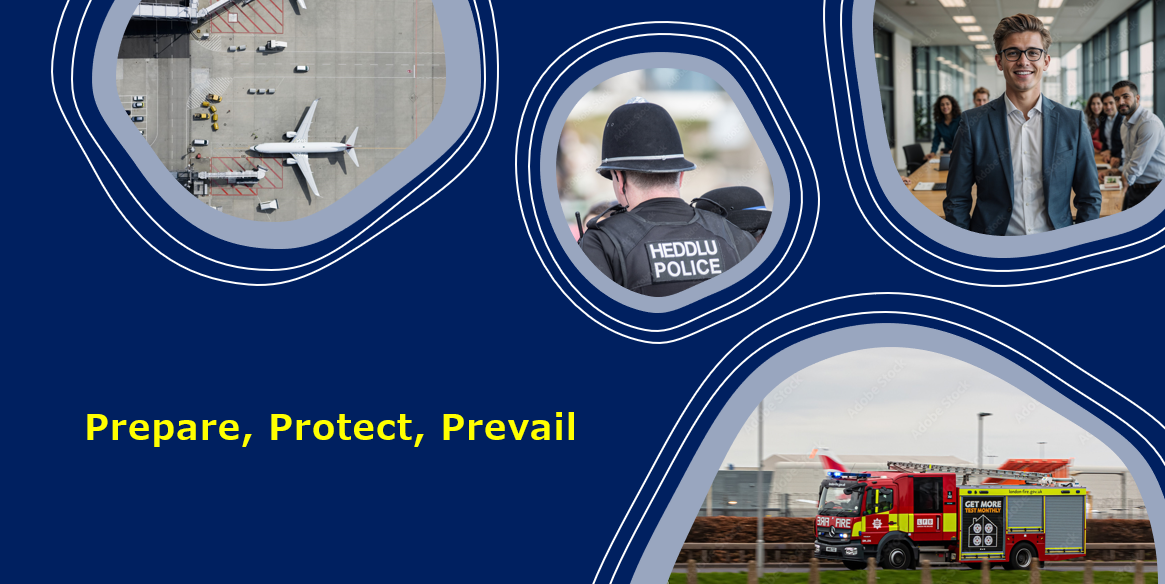Course Detail: SEC-2000 - Mastering Crisis Communications - In-Person
Mastering Crisis Communications
Unlock Your Superpower with Our Exclusive Course!
Are you ready to become the hero your organisation needs during a crisis? No matter what role you play at an airport, space operations centre, public transportation hub, or any public-facing entity, this short-course will teach you invaluable strategies on how to navigate your next major public relations crisis unscathed and preserve customer trust. This training is a must-have for communication directors, public liaisons, front-line operators, first responders, and anyone else serious about protecting their brand's reputation.
Join our Crisis Communications professional education short-course and transform your ability to handle any situation with confidence and finesse!
Why This Course is a Game-Changer:
- Expert Instructors: Learn from industry leaders with decades-long real-world crisis management experience!
- Proven Strategies: Equip yourself with cutting-edge techniques used by top Fortune 500 companies.
- Hands-On Training at Cardiff Airport: Engage in immersive simulations and live scenarios to hone your skills.
- Network and Learn from Peers: The 2-day, in-person course will allow you to liaise with other professionals in your field and learn about issues affecting various industries.
- Certificate: Earn a prestigious Embry-Riddle certificate that attests to your mastery of crisis communication.
Who Should Take this Course:
- Airport Management and Executives: Airport staff and decision-makers who may be responsible for communication and decision-making during a crisis.
- Airline Representatives: Airline staff, including gate agents, ticketing agents, and in-flight crew, who need to communicate with passengers and coordinate with the airport's crisis management team.
- Emergency Response Organisations: Personnel directly involved in emergency response, including security, fire, medical, and other first responders.
- Government and Regulatory Officials: Representatives from governmental and regulatory bodies, such as the Civil Aviation Authority (CAA), who need to coordinate with the airport and other stakeholders.
- Contractors and Partner Organisations: Employees from companies providing services at the airport, such as baggage handling, cleaning, and retail operations, who need to be aware of crisis communication protocols.
- Public Relations and Communications Teams: Staff responsible for managing the company's public image and communication with the media, customers, and the public.
- Customer Service Representatives: Staff who interact directly with customers and need to provide accurate and timely information during a crisis.
- Information Technology and Cybersecurity Staff: IT and cybersecurity staff who ensure the security and functionality of communication systems during a crisis.
- Local Community Leaders: Representatives from the local community, including local government officials and community organizations, who may need to be informed and involved in crisis communication.
- Media Representatives: Journalists and media personnel who report on airport operations and crises, ensuring they understand the protocols and cooperate effectively.
What You Will Learn:
- How to be prepared and develop a comprehensive crisis communication plan, including predefined roles, spokespersons, and protocols before a crisis occurs.
- How to continuously monitor social media and other channels for signs of emerging crises.
- How to respond quickly to control the narrative and prevent misinformation. Students will engage in a crisis simulation to ensure that key personnel can handle press enquiries and interviews effectively.
- How to be transparent, open, and honest about the situation, even when the news is negative.
- How to deliver clear, concise, and factual communication in an effort to avoid jargon, and ensure that messages are easily understood by the public.
- How to show empathy and genuine concern for those affected by the crisis.
- How to provide prudent follow-up after the initial response, providing regular updates and show the steps being taken to address the issue.
Limited Seats Available! Don't miss out on this opportunity to elevate your career and protect your brand. Secure your spot today!
Registration: The first step in the registration process is to create your profile here. After that, add your session of choice to your shopping cart. Once done, please send email to europe@erau.edu and we will send you the invoice, if you would rather not pay by credit card.
Prepare, Protect, Prevail. Master Crisis Communications Today!
Embry-Riddle Aeronautical University is renowned for its emphasis on aviation and aerospace. The crisis communication course at Embry-Riddle is tailored specifically to address the unique challenges and scenarios encountered in these industries, such as aircraft accidents, space missions, and airport security incidents. With campuses and partnerships around the world, Embry-Riddle offers a global perspective on crisis communications.

 Cart (0)
Cart (0)
